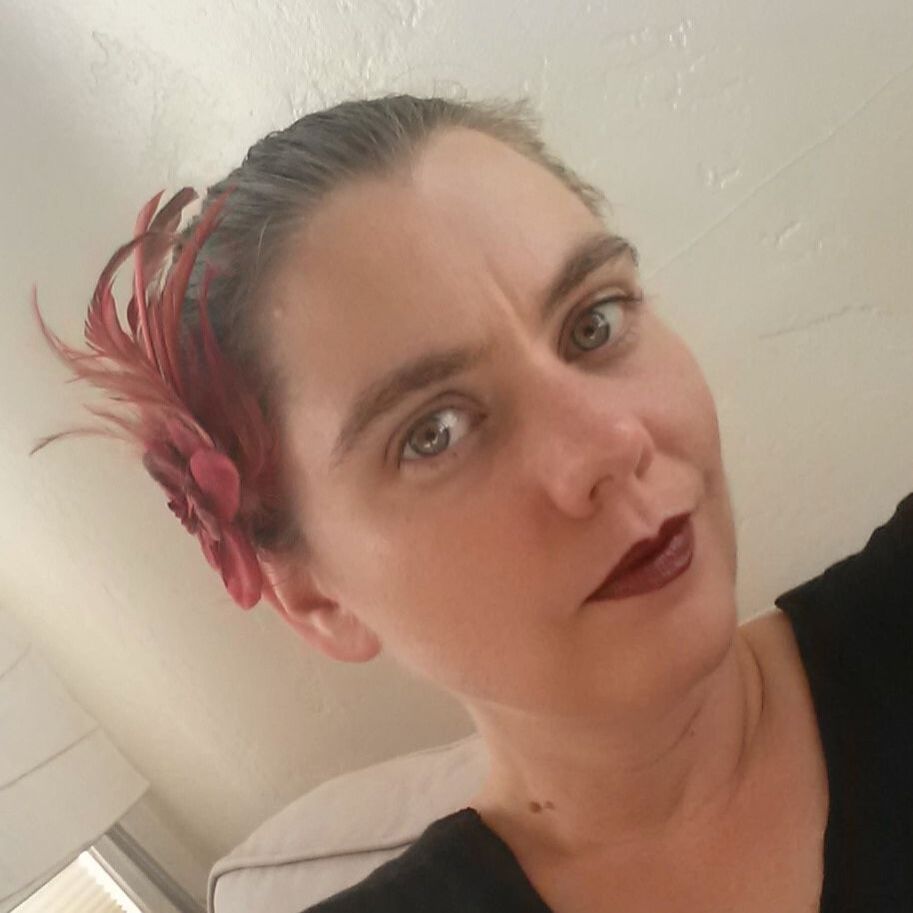Cecilia Cissell LucasCecilia (she/they) grew up bilingually and biculturally, moving back and forth between Germany and the U.S., due to her father’s job with the U.S. army. This experience made them deeply skeptical of nationalism -- in Germany, it was taboo given still-fresh memories of Nazism, whereas among the American military in Germany, and back in the U.S., nationalism was on display everywhere, renamed as “patriotism.” This contradiction, along with the embodied experience of being queer, led her to question categories from a young age, including notions of home, borders, and belonging. Many years later, reflections on these early experiences were published in an essay she wrote titled “Don’t Ask, Don’t Tell, Don’t Serve” which appeared in the anthology Against Equality: Queer Revolution, Not Mere Inclusion -- Don’t Ask to Fight Their Wars (AK Press).
Cecilia spent their 20s creating theater, earning a BFA in Theater and Performance Studies, with a Minor in Dance, from the University of Illinois at Urbana-Champaign. She then spent five years working as a director with Albany Park Theater Project, a youth theater company creating plays based on real-life stories of people in Chicago’s largely immigrant Albany Park neighborhood. Through this work, she experienced the potential of community-based ensemble theater for engaging people in critical analyses of personal and social experiences; for fostering a sense of agency in terms of the ability to craft representations and to elicit responses from audience members; for countering stereotypes; for expanding imaginations; and for fostering meaningful relationships across many lines of difference. She came to believe that the most significant learning happens when our hearts, bodies, spirits and creativity are engaged, in addition to our minds. In 2004, Cecilia moved from Ojibwe, Odawa, and Potawatomi land (colonially known as Chicago) to Ohlone Land (residing in Oakland and Richmond), where she earned an MA and PhD in Social and Cultural Studies in Education from UC Berkeley. Their interdisciplinary dissertation combined Education, Performance Studies, Ethnic Studies and Urban Planning to examine the potential and pitfalls of white people’s involvement in racial justice and decolonization processes. They also sought out education on these topics through teachers outside the academy, including through organizations/campaigns working on gentrification/affordable housing/displacement/homelessness, combating police brutality and jail expansion, defending indigenous sacred sites and religious freedom, and through POOR Magazine’s PeopleSkool for people with race, class and/or formal education privilege. Graduate school was interrupted for two years when her Mom was diagnosed with pancreatic cancer and she moved to North Carolina to be with her until she died. This process led her to deepen her spiritual practices. Cecilia completed the year-long Commit to Dharma program at the social-justice-focused East Bay Meditation Center, and subsequently joined the EBMC teaching team for White and Awakening in Sangha, a six-month course on white racial conditioning. Cecilia combined her academic, political and spiritual work into a piece published by Turning Wheel Media, titled “Dreaming of Debt, Practicing P/Reparations,” which also detailed her personal process of passing on her inheritance as reparations. In their 40s, living across the street from the Richmond oil refinery led to increasing awareness of and involvement in environmental justice issues and the climate crisis. This also became the decade focused on bringing the artistic, activist, academic and spiritual strands of their life together more robustly, especially through Creating Freedom Movements, as well as through being a core member of ACTual (a theater of the oppressed troupe that works in collaboration with various social justice campaigns) and BoomShake (a women's and trans drumming group that performs at protests, rallies and community events), and as a fellow with Yerba Buena Center for the Arts on the topic, “Can We Design Freedom?” Her project for that fellowship, Mobile Liberation Activator, was done in collaboration with two other fellows (Lisa Evans and Veronica Jackson) and three community-based organizations (POOR Magazine, BoomShake, and Medea Project: Theater for Incarcerated Women). It was selected to receive additional funding to create a new iteration of the project for Citizenship 2.0, an initiative sponsored by YBCA, Neighborland, and the National Endowment for the Arts. In 2016, Cecilia became disabled with Multiple Chemical Sensitivities (MCS). While often painful and isolating, this was also the catalyst that introduced them to disability communities and Disability Justice (DJ), which has been one of the greatest gifts of her life. She is grateful to all those who have been and continue to develop the DJ framework and put it into action, and to have an opportunity to contribute to spreading this culture of care through Creating Freedom Movements. From 2013-2022, Cecilia also worked as a faculty member at UC Berkeley, where she taught classes on Art and Activism (in collaboration with T. Roberts), Education and Social Change, Global Poverty and Practice, and Community Reparations and Decolonization (in collaboration with POOR Magazine and Mara Chavez-Diaz). Recently, Cecilia moved to Cherokee land (colonially known as the Asheville, NC area) to be closer to her family. They are thrilled that Creating Freedom Movements is now an online program, and that she can thus continue to be involved! |
